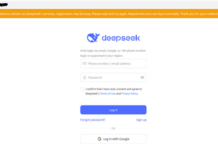Co-authored by Hoosen Essof (Head of Employability) and Deepti Govind (Intern) at Regent Business School)
As artificial intelligence continues its rapid ascent, reshaping industries and redefining professional landscapes, the conversation around career resilience has never been more urgent. In this jointly authored piece by Hoosen Essof, the Head of the Employability Unit at Regent Business School and Deepti Govind, an intern working within the same division, we explore the real-world implications of AI for today’s workforce and the next. By combining strategic oversight with a ground-level perspective, this article brings together the voice of institutional leadership and the lived experience of a generation preparing to enter an AI-enhanced world. Together, we examine why a blend of human-centred skills and adaptive business education is essential not only for employability, but for long-term success in a future shaped by intelligent technology.
In the face of rapid technological advancements, artificial intelligence (AI) and automation are transforming industries and redefining the workforce. While these changes present challenges, they also offer opportunities for professionals to adapt and thrive. Central to this adaptation is the cultivation of human-centric skills and strategic business education, which together can ensure long-term career resilience in an AI-augmented world.
The Threat is Real, but so is the Opportunity
AI’s influence extends across various sectors, reshaping job roles and skill requirements. For instance, the rise of AI in marketing has led to the emergence of hybrid positions that blend technical expertise with creative strategy. Similarly, in finance, AI tools assist in data analysis, but human judgment remains crucial for interpreting results and making strategic decisions. This trend underscores the importance of combining technological proficiency with human insight. By learning how AI integrates into your specific industry and leveraging it for improvement, you not only enhance the field but also strengthen your own technological skills. While AI can handle a wide range of tasks, it still requires the human touch for qualities that cannot be replicated – such as empathy, creativity, ethical judgement, leadership, and the ability to genuinely listen and understand the concerns that individuals have with a certain situation. Those who can achieve the correct balance between technical literacy and human intuition will thus have a competitive advantage in the workplace. Business schools can prepare students not only for the specifics of their industries, but also for the dynamic challenges provided by AI, giving them the capabilities they need to adapt, lead, and prosper in a technology-driven society.
Human-Centric Skills on the Rise
Although AI is advancing in automation of routine and technical jobs, there remains a domain where it will consistently underperform; skills that are centred around human interaction. These abilities are valued by employers and will remain essential as we progress deeper into an AI-driven future. Skills such as critical thinking and problem-solving are needed to analyse situations, identify challenges and think outside the box – something only a human can do. In situations involving decision-making, individuals can rely on a broad range of personal experiences, cultural backgrounds, and moral issues.
Equally important are human-centred skills such as emotional intelligence and adaptability, qualities that remain well beyond the reach of AI. Humans need to feel empathy and understand in certain situations that they are facing; only a human can understand and manage those emotions while adapting to the situation and environment they are positioned in. Being creative and coming up with original plans is something only human intuition can aid, where new ideas are formed and there is a personal touch added to ideas being created. These skills need leadership, another downfall of AI, it cannot be accountable for leading teams. Business education provides individuals with the mindset and abilities to excel in volatile, uncertain, complex, and ambiguous settings, cultivating the resilience needed to thrive in a constantly evolving professional environment.
Business Education as a Career
Now, as AI is becoming integral to business operations, traditional educational models may fall short in preparing professionals for future challenges. Schools and universities need to start becoming more aware of how AI can help students and encourage its use in the right way rather than banning it from being used during assessments. Individuals have implemented robotics for the longest time in South Africa, but that needs to evolve further now. As research shows, current courses frequently cover subjects such as digital transformation, AI ethics, and innovation management. These fields of study give students a more profound insight into the ways technology interacts with business processes, ethics, and social dynamics. Reports suggest that professionals are increasingly adding AI skills to their portfolios, with people now more than twice as likely to acquire AI skills than in 2018. This trend highlights the growing recognition of AI’s importance and the need for education systems to adapt accordingly. Investing in business education, such as postgraduate diplomas, MBAs, or specialised courses, equips individuals with a blend of technical knowledge and soft skills. This combination enhances employability and positions professionals to lead in sectors where AI and human expertise intersect. Contemporary business schools provide programmes that focus on interdisciplinary approaches, teamwork, and adaptability; capabilities crucial for thriving in the digital economy. Through cultivating a diverse skill set, business education equips students for various roles, from management to entrepreneurship, making sure they stay adaptable and employable regardless of changes in the job market.
As AI continues to redefine how we work and live, professionals must view it not just as a disruptor, but as a collaborator. The ability to co-create with AI, using it to enhance decision-making, improve productivity, and uncover new solutions is quickly becoming a critical skill. Those who take the initiative to explore AI’s potential in their roles will not only remain relevant but will likely become innovators within their fields.
Institutions and employers must play an active role in supporting this transition. By laying the foundation for cultures of experimentation, continuous learning, and ethical AI integration, organisations can empower their people to thrive amid change. This will mean not just surviving the AI wave but surfing it with confidence, creativity, and purpose.
Something that individuals need to consider is how they need to adapt their profession to AI and include it so that they are evolving. They feel defeated because they believe that AI can replace them, but rather openly embrace the change and grow as individuals. They can do this by attending workshops, webinars, and even enhancing their skills in areas where AI cannot replace humans.
The interplay between AI and human skills is reshaping the employment landscape, creating a demand for professionals who can blend technological proficiency with human-centric competencies. Strategic business education serves as a building block for developing this unique skill set, ensuring career resilience in the face of automation. As AI continues to evolve, professionals who invest in continuous learning and adapt their skill sets accordingly will be well-positioned to lead and innovate in an increasingly automated world.
If you’re ready to seek success, explore Regent Business School’s MBA and DBA programmes for the 2025 intake on our website, call +27 31 304 4626 or send an email to study@regent.ac.za. Our programmes equip you to excel by surrounding you with success.
Article Provided




























